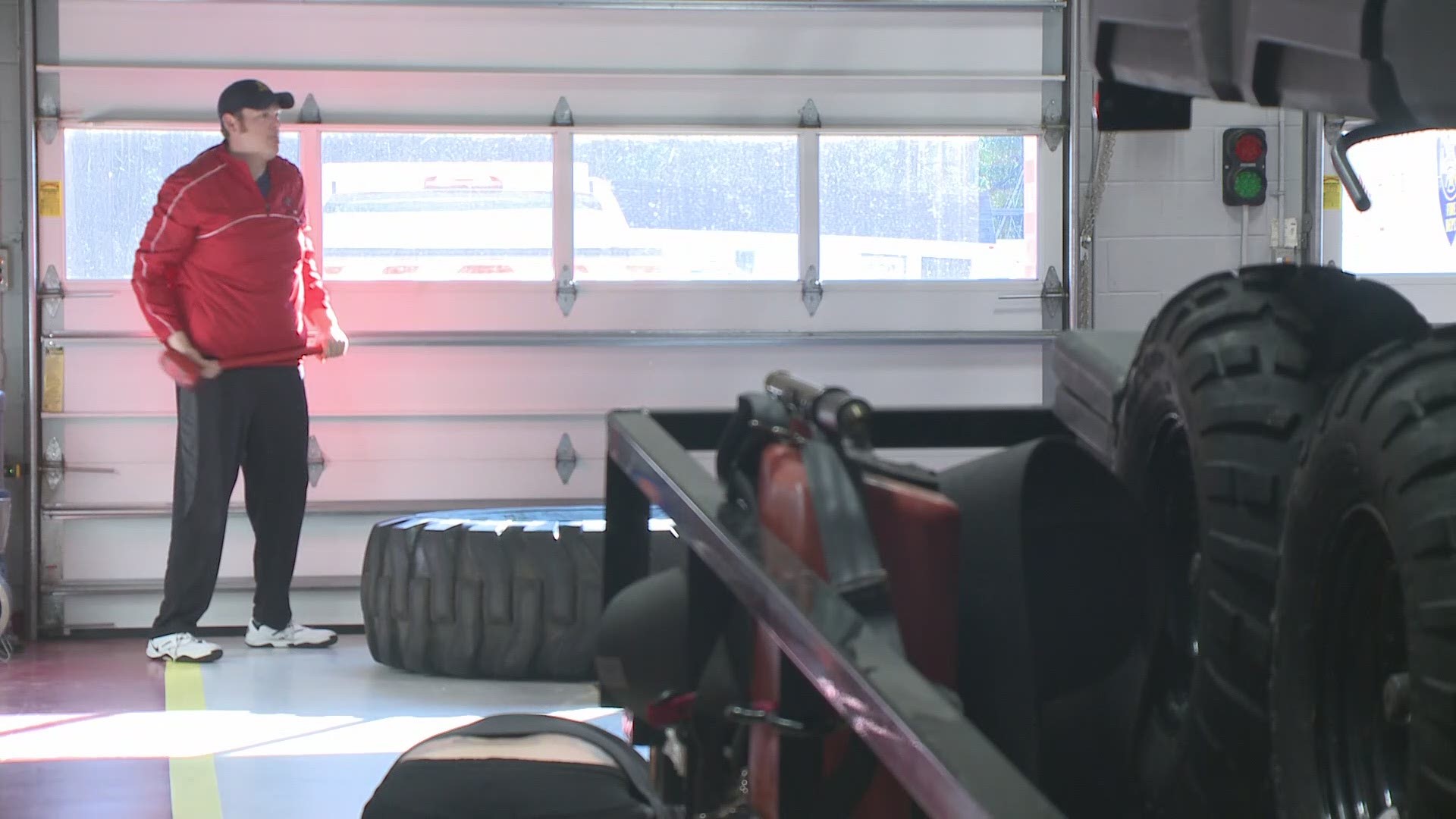SACO, Maine — How well do you know the faces of the first responders in your community? In a lot of towns, the ones who are called to a fire are also the ones who show up to a medical emergency; and as the demands of the industry change, so do the faces of those joining the service.
"Starting off here it was predominately - it still is pretty heavy - on the male aspect of things, but I've seen it evolve to the women coming in through the doors. I think it started because of the fact that everything is so EMS anchored now with the call volume," Captain Chris West is in charge of his shift at the Saco Fire Department, which is one of the few with two female firefighters; Erin Squibb and Marilu Cross, who both started their careers as paramedics.
75% of Saco's emergency calls last year were medical-based, meaning they required an ambulance, not a fire truck.
"During paramedic school I did a ride time with Sanford Fire and they said, 'You should try fire service.' And I was like, burning buildings? I don't know about that," recalls Marilu Cross. "But I pushed myself through the Fire Academy and once I knew I could do that it was another thing that got me hooked again and I was like let's do this."
There are four women working as fire fighters/paramedics in Saco. In Maine, just 6-8% of all career fire fighters are women. They're still very much the minority in this profession, and that's often clear when they're on calls.
"You still get people now and then especially some of the older patients who are like, 'Why do you want to do a man's job?' And I'll try to greet it with some humor like, 'Oh God, I don't want to do a man's job, that sounds terrible! I just want to be a fire fighter/paramedic.' I get them laughing because there are certain mindsets you can't change and you can either dwell on it or confront it which isn't going to help anything. I just laugh and work harder at it," says Erin Squibb, who says there is very little that's different between her and her male counterparts.
Truthfully, there are differences, and they are so important in this profession. "One of the most important aspects about having females in the fire service is that half the population is female too," says Captain West. "I think the female fire fighter/paramedic adds a certain level of care without even trying on the EMS side of things."
Beyond EMS, this crew works out together so they can work better together.
"Hey I'm 115 pounds and I'm 5'2.5 and I can do this job. I make some modifications and I adapt, but I can still do the job," says Delani Goeben. "I might not be able to drag Marilu across this floor just with my two hands but if I get some webbing around her and get that secured to my core I can move around a lot easier. Having those tools to kind of work, mechanical advantage is a huge part of that."
"There are physical differences between men," says Capt. West. "I have a lieutenant that can pick up half a car, so I'm not gonna send one of my female officers or even myself over there to try to pick up half a car. I think that as an officer one of our biggest roles is to know where your strengths and weaknesses are, whether they be physical EMS-based or experience base, and to assign the right people to the right job."
In order to walk through the doors of the fire station, there are guidelines these fire fighters and paramedics need to meet no matter their gender. The same tests, the same rules, the same training - even with their differences.


"One of the things I didn't think about was that my son who is now turning four sees this as a normal thing as well," says Squibb. "To him, mom goes to the fire station and dad teaches at the college and, 'I want to go see mom's fire trucks, I know mom can fix this,' if one of his toys is broken and he's actually like, 'Mom, can you bring us to the fire station and fix it please?' So it's really awesome that those things are now normal for him."

